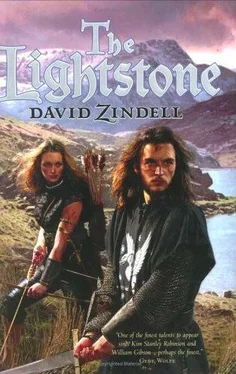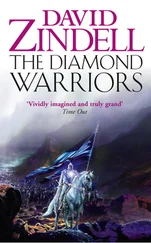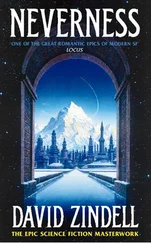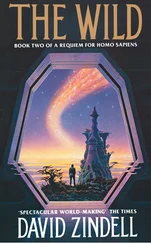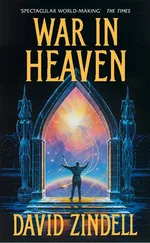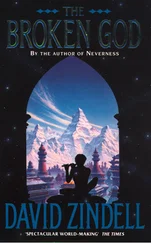David Zindell - The Lightstone
Здесь есть возможность читать онлайн «David Zindell - The Lightstone» — ознакомительный отрывок электронной книги совершенно бесплатно, а после прочтения отрывка купить полную версию. В некоторых случаях можно слушать аудио, скачать через торрент в формате fb2 и присутствует краткое содержание. Жанр: Фэнтези, на английском языке. Описание произведения, (предисловие) а так же отзывы посетителей доступны на портале библиотеки ЛибКат.
- Название:The Lightstone
- Автор:
- Жанр:
- Год:неизвестен
- ISBN:нет данных
- Рейтинг книги:5 / 5. Голосов: 1
-
Избранное:Добавить в избранное
- Отзывы:
-
Ваша оценка:
- 100
- 1
- 2
- 3
- 4
- 5
The Lightstone: краткое содержание, описание и аннотация
Предлагаем к чтению аннотацию, описание, краткое содержание или предисловие (зависит от того, что написал сам автор книги «The Lightstone»). Если вы не нашли необходимую информацию о книге — напишите в комментариях, мы постараемся отыскать её.
The Lightstone — читать онлайн ознакомительный отрывок
Ниже представлен текст книги, разбитый по страницам. Система сохранения места последней прочитанной страницы, позволяет с удобством читать онлайн бесплатно книгу «The Lightstone», без необходимости каждый раз заново искать на чём Вы остановились. Поставьте закладку, и сможете в любой момент перейти на страницу, на которой закончили чтение.
Интервал:
Закладка:
May he find the wisdom to do what we all wish for in walking the road toward peace.'
As I touched my lips to my beer, he flashed me a quick, hard look as if testing me with a feint of his sword.
I knew that 1 should have thought of an Immediate rejoinder to his thinly veiled demand. But the maliciousness in his eyes held me to my chair. Instead, it was my usually unimaginative brother, Karshur, who stood and raised his goblet
'To King Shamesh,' he said in a voice that sounded like boulders roll-ing down a mountain. He himself was built like an inverted mountain as if successive slabs of granite had been piled higher and deeper from his thick legs to his massive shoulders and chest. 'May he find the strength to do what he has to do no matter what others may wish.'
As soon as he had returned to his chair, Jonathay stood up beside him. He had all of our mother's beauty and much of her grace as well. He was a fatalistic but cheerful man who liked to play at life, most especially at war – though with skillful and deadly effect. He laughed good-naturedly as if enjoying this duel of words. 'To Queen Elianora, may she always find the patience to endure men's talk of war.'
All at once, from the tables throughout the hall, the many women there raised their goblets as if by a single hand and called out, 'Yes, yes, to Queen Elianora!'
As a nervous laughter spread from table to table, my mother stood and smoothed out the folds of her black gown. Then she smiled kindly. Although she directed her words out into the hall, it seemed that she was speaking right at Salmelu.
'To all our guests this evening,' she said, 'thank you for making such long journeys to honor our home. May the food we've all shared nourish our bodies, and may the good company we bring open our hearts so that we act out of the true courage of compassion rather than fear.'
So saying, she turned to Salmelu and beamed a smile at him. In her bright eyes there was only an open desire for fellowship. But her natural grace seemed to infuriate Salmelu rather than soothe him. He sat deathly still in his chair gripping the hilt of his sword as his face flushed with blood. Although Salmelu had stood sword to naked sword with fifteen men in the ring of honor, he couldn't seem to bear the gentleness of my mother's gaze.
Because it would have been unseemly for him to stand again while others waited to make their toasts, he cast a quick, ferocious look at Lord Nadhru as if to order him to speak in his place. And so Lord Nadhru, a rather angry young man who might have been Salmelu's twin in his insolent nature if not appearance, sprang up from his chair.
'To Queen Elianora,' he said, looking over the rim of his goblet. 'We thank her for reminding us that we must always act with courage, which we promise to do. And we thank her for welcoming us into her house, even as she was once welcomed herself.'
This, I thought, was the Ishkans' way of reminding her that she was as much of an outsider in the castle as they were, and therefore that she had no real right to speak for Mesh. But of course this was just Pure spite on their part. For Elianora wi Solaru, sister of King Talanu of Kaash, had chosen freely to wed my father and not their greedy, old king.
And so it went, toast after toast, both Ishkans and Meshians casting words back and forth as if they were velvet-covered spears. All this time my father sat as still and grave in his chair as any of our ancestors in the portraits lining the walls. Although he kept most of the fire from his eyes, I could feel a whole stew of emotions boiling up inside him: pride, anger, loyalty, outrage, love. One who didn't know him better might have thought that at any moment he might lose his patience and silence his attackers with a burst of kingly thunder. But my father practiced self-restraint as others did wielding their swords. No man, I thought, asked more of himself than he.
In many ways he embodied the Valari ideal of flowingness, flawlessness and fearlessness. As I, too, struggled to keep my silence, he suddenly looked at me as if say, 'Never! let the enemy know what you're thinking.'
I believe that my father might have allowed this part of the feast to continue half the night so that he might better have a chance to study the Ishkans – and his own countrymen and sons. But the toasting came to a sudden and unexpected end, from a most unexpected source.
'My lords and ladies!' a strong voice suddenly bellowed out from below our table, ' I would like to propose a toast.'
I turned just in time to see Maram push back his chair and stand away from the Brothers' table. How Maram had acquired a goblet full of beer in plain sight of his masters was a mystery. And clearly it was not his first glass either, for he used his fat, beer-stained fingers to wipe the dried froth from his mustache as he wobbled on his feet. And then he raised his goblet, spilling even more beer on his stained tunic.
' To Lord Harsha,' he said, nodding toward his table. 'May we all thank him for providing this wonderful drink tonight.'
That was a toast everyone could gladly drink to; all at once hundreds of goblets, both of glass and silver steel, clinked together, and a grateful laughter pealed out into the room. I looked across the hall as Lord Harsha shifted about in his chair.
Although he was plainly embarrassed to have been singled out for his generosity, he smiled at Maram all the same. If Maram had left well enough alone and sat back down, he might even have gained Lord Harsha's favor. But Maram, it seemed could never leave anything alone.
'And now I would like to drink to love and beautiful women,' he said. He turned to Behira, fairly drinking in the sight of her as if the sensibilities of the hundreds of people looking on didn't matter. 'Ah, the love of beautiful women – it's what makes the world turn and the stars shine, is it not?'
Master Juwain looked up at Maram but Maram ignored his icy stare.
'It's to the most beautiful woman in the world that I would now like to dedicate this poem, whose words came into my mind like flowers opening the first moment I saw her.'
He raised his goblet toward Behira. Forgetting that he was supposed to wait until after the toast before drinking, he took a huge gulp of beer and all the while, Behira sat next to her father flushing with embarrassment. But it was clear that Maram's attentions delighted her, for she smiled back at him, glowing with an almost tangible heat.
'Brother Maram,' Lord Harsha suddenly called out in his gravelly old voice, 'this isn't the place for your poetry.'
But Maram ignored him, too, and began his poem:
Star of my soul, how you shimmer
Beyond the deep blue sky,
Whirling and whirling – you and I whisperlessly Spinning sparks of joy into the night.
I stared at the rings glittering from Maram's fingers and the passion pouring from his eyes. The words of his poem outraged me. For it wasn't really his poem at all; he had stolen the verse of the great but forgotten Amun Amaduk and was passing it off as his own.
Lord Harsha pushed back his chair and called out even more strongly, 'Brother Maram!'
Maram would have done well to heed the warning in Lord Harsha's voice. But by this time he was drunk on his own words (or rather Amun's), and with childlike abandon began the second stanza of the poem:
From long ago we came across the universe:
Lost rays of light, we fell among strange new flowers And searched in fields and forests
Until we found each other and remembered.
Now Lord Harsha, gritting his teeth against the pain of his broken knee suddenly rose to his feet. With surprising speed, he began advanc-ing down the row of tables straight at Maram. And still Maram continuedreciting his poem: Soul of my soul, for how few moments
Were we together on this wandering earth
Читать дальшеИнтервал:
Закладка:
Похожие книги на «The Lightstone»
Представляем Вашему вниманию похожие книги на «The Lightstone» списком для выбора. Мы отобрали схожую по названию и смыслу литературу в надежде предоставить читателям больше вариантов отыскать новые, интересные, ещё непрочитанные произведения.
Обсуждение, отзывы о книге «The Lightstone» и просто собственные мнения читателей. Оставьте ваши комментарии, напишите, что Вы думаете о произведении, его смысле или главных героях. Укажите что конкретно понравилось, а что нет, и почему Вы так считаете.
